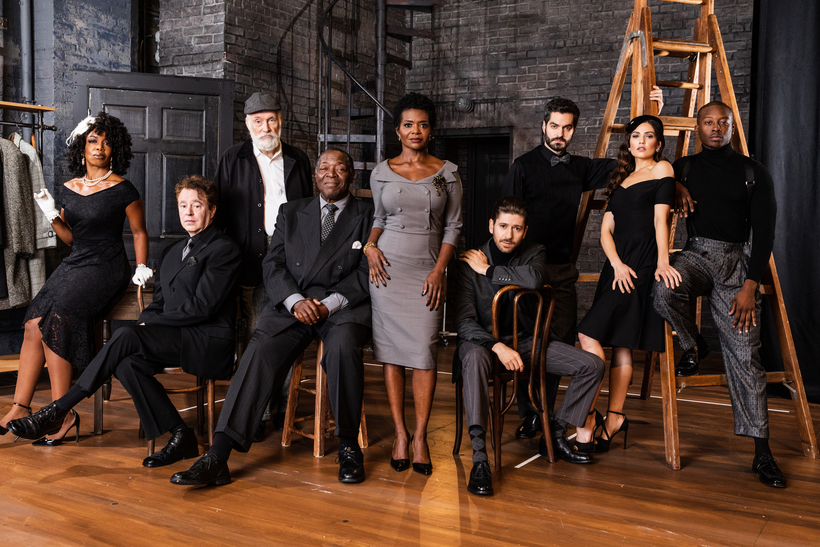Exactly 100 years after the Civil War commenced, and amid the mid-20th-century civil-rights movement, Jack Kirkland’s antebellum melodrama, Mandingo, opened at the Lyceum Theatre on May 22, 1961. Based on a 1957 novel by Kyle Onstott, it was set in 1832 on an Alabama plantation called Falconhurst, not so much a Tara as a shabby farm whose main crops were enslaved men and women.
Mandingo was positioned as a riposte to the Lost Cause treacle of Gone with the Wind. The cast was bi-racial: Franchot Tone starred as the old Falconhurst patriarch, a character given to Foghorn Leghorn locutions and outrageous cruelty. Dennis Hopper played his tenderhearted son, and Brooke Hayward was cast as a nymphomaniac Southern belle. (The two developed a romance in what was both of their Broadway debuts and married a few months later.) Among the Black cast members were Vinie Burrows, Rockne Tarkington, and the 83-year-old legend Georgia Burke, who’d played one mammy after another for decades.

Burke died in 1985 at the age of 107. She is now enjoying a revival of sorts. In 1955, the pioneering Black playwright Alice Childress modeled a character on Burke—Wiletta Mayer—and placed her at the center of a play about a play, the latter a well-meaning but hopelessly flawed Black-and-white production about a lynching. (It’s as if she foresaw Mandingo, a disaster that closed after a few performances.)
Childress called this incisive satire Trouble in Mind, and it sparked enough Off Broadway excitement—The New York Times called it “a fresh, lively and cutting satire”—to be transferred to Broadway in 1957. But white producers clashed with Childress, who refused to water down her play to spare delicate midcentury sensibilities. And so Trouble in Mind was shelved.

Until now. After a 64-year delay, the Roundabout Theatre Company has brought Trouble in Mind to Broadway in a high-energy, high-velocity production at the American Airlines Theatre. In the role of Wiletta we have LaChanze, the Tony Award–winning force of nature from The Color Purple, leading a bi-racial cast that includes fellow Tony winner Chuck Cooper.
A corrosive comedy of attitudes and assumptions exploring the Black experience in the largely white New York theater, Trouble in Mind is, by turns, searing and outright hilarious, with barely a whiff of sanctimony. Which is to say that this lost gem from another era is no artifact. Given the current climate, Trouble in Mind—by a playwright who died in 1994 and who, in some ways, has never received her due—feels startlingly, even alarmingly, new.
Mark Rozzo is an Editor at Large for AIR MAIL
The Roundabout Theatre Company’s Trouble in Mind is on at the American Airlines Theatre, in New York, through January 9

